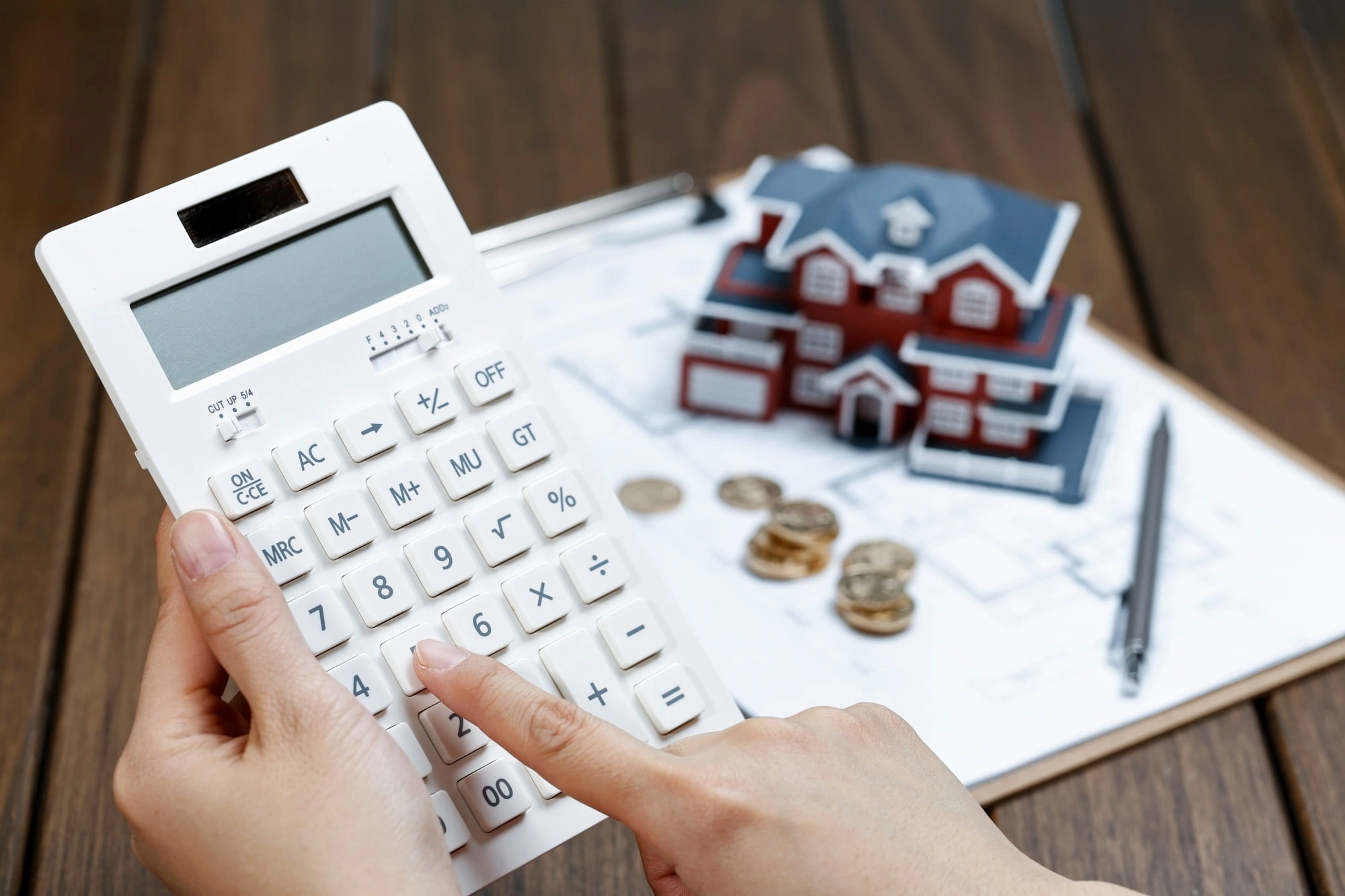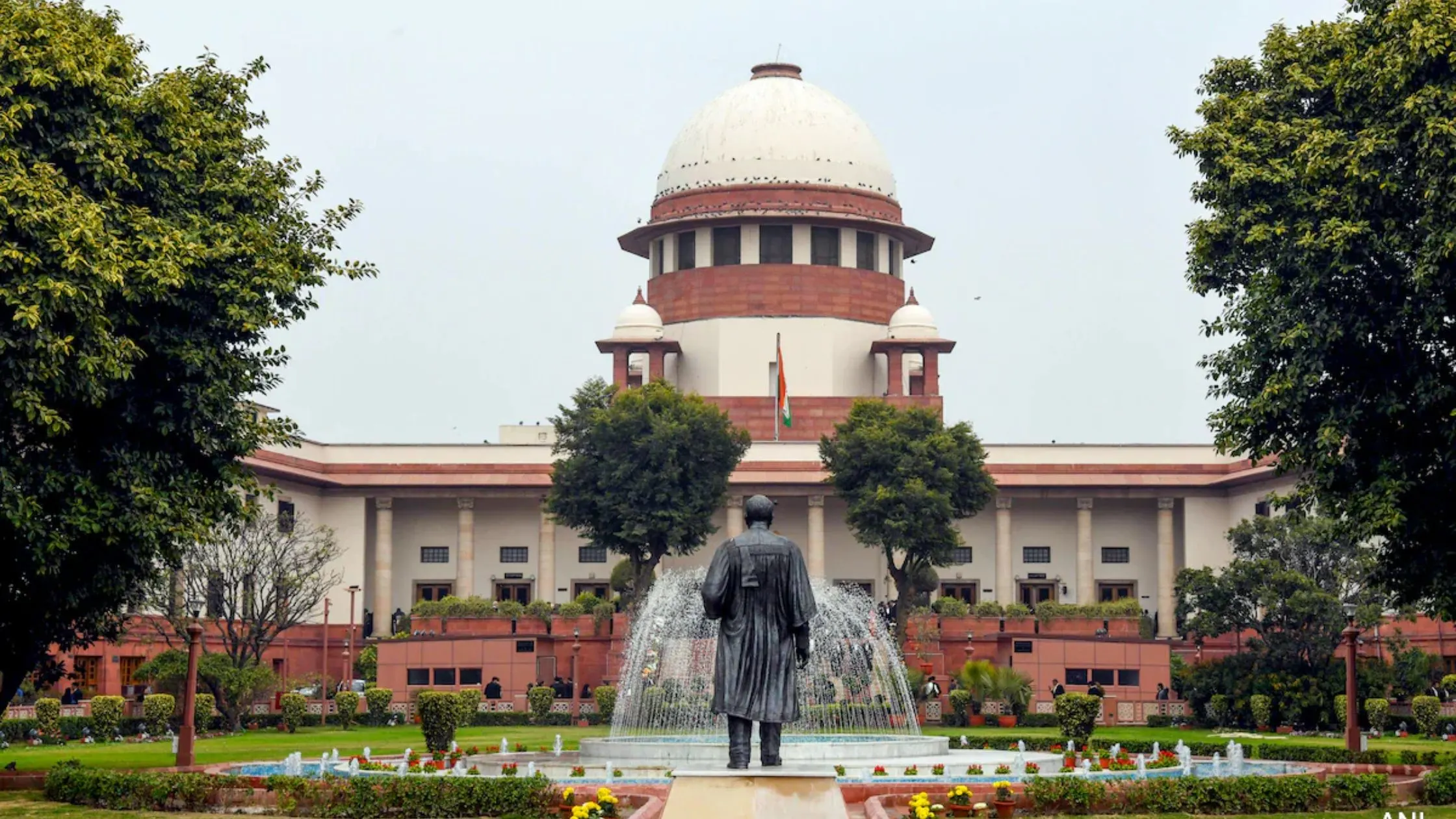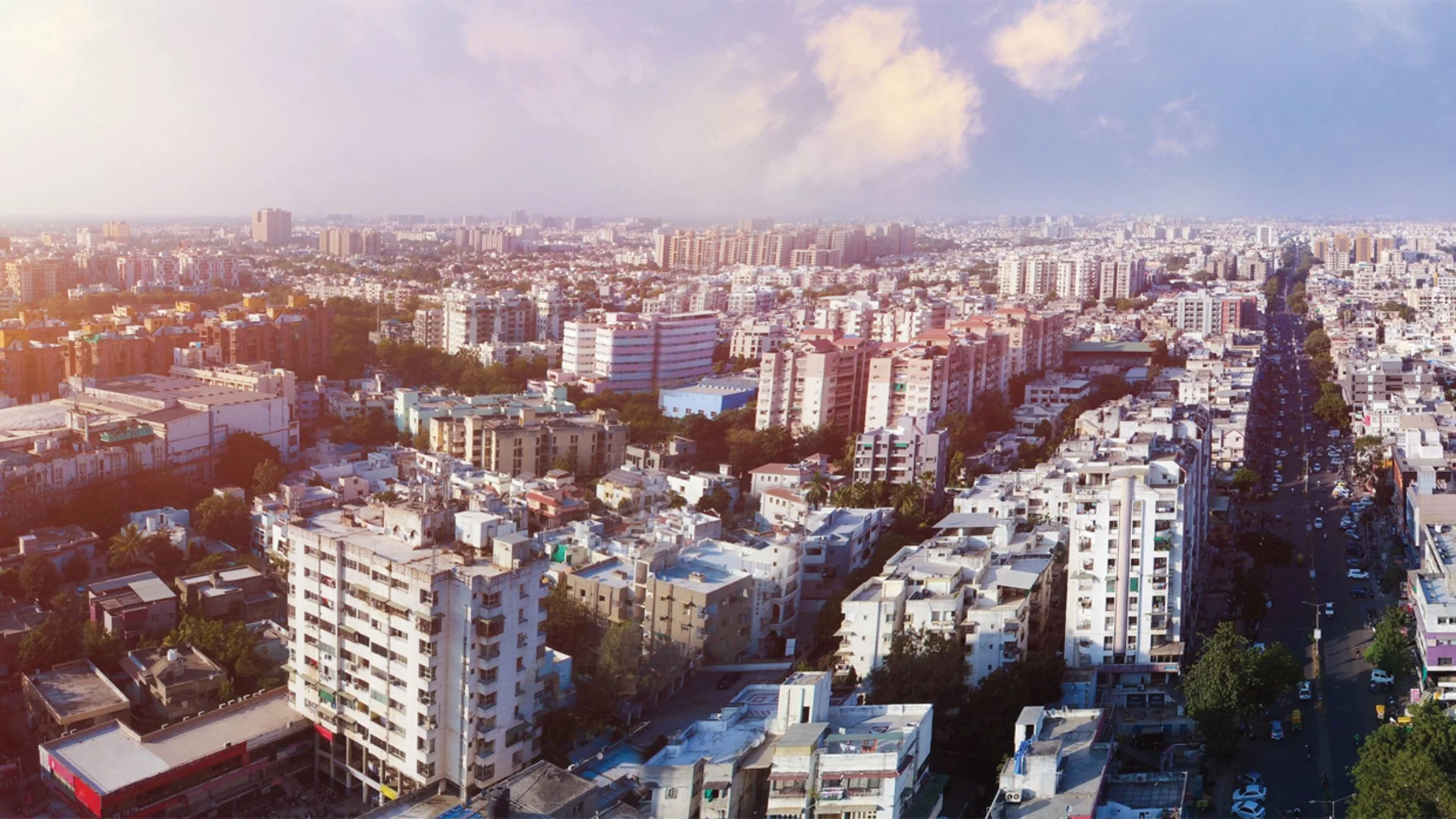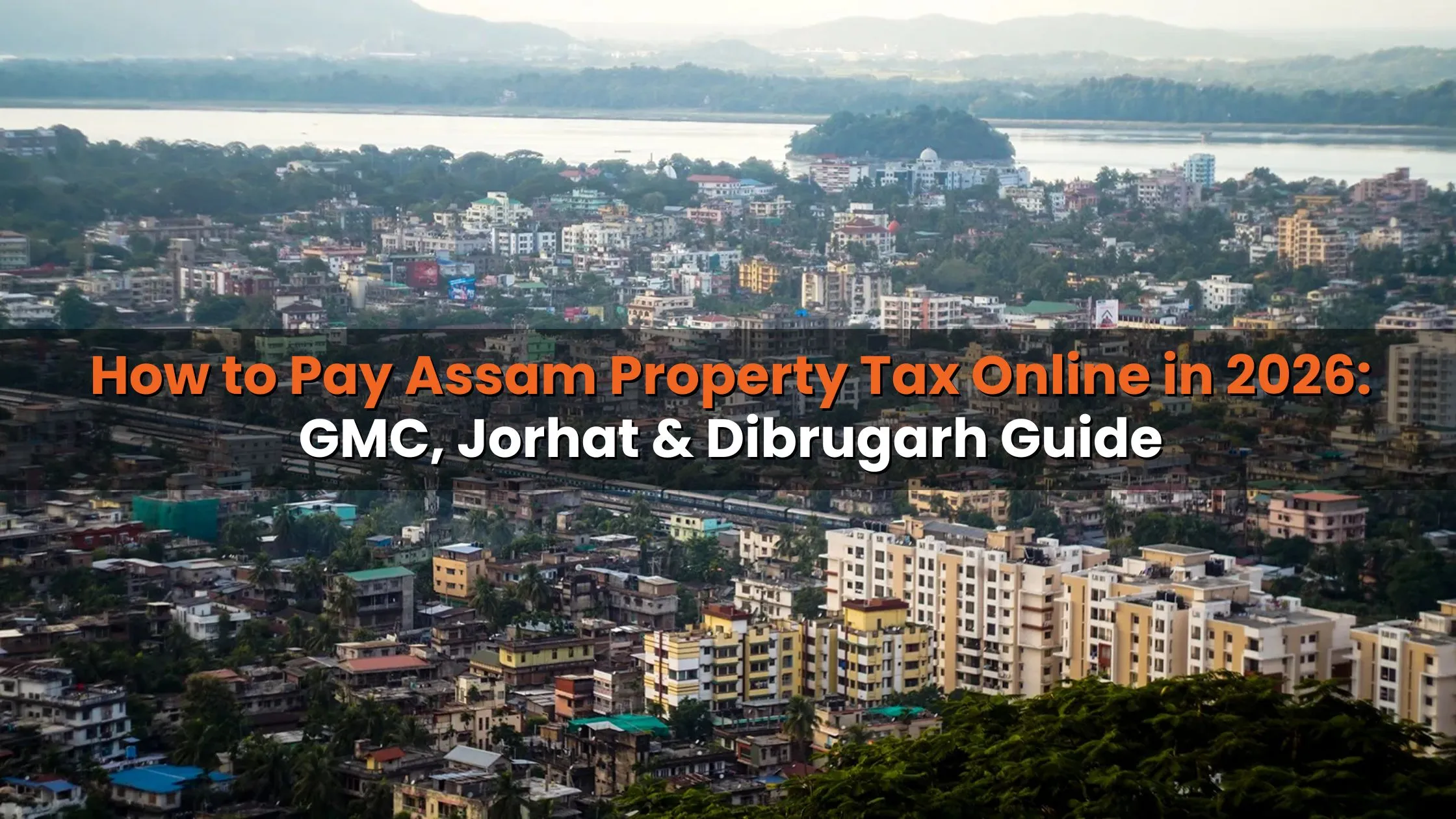Table of Content
▲- 1. Introduction to Property Tax in India
- 2. Methods of Property Tax Calculation
- 3. Property Tax Calculation in Mumbai
- 4. Property Tax Calculation in Delhi
- 5. Property Tax Calculation in Bangalore
- 6. Property Tax Calculation in Chennai
- 7. Property Tax Calculation in Kolkata
- 9. How to Pay Property Tax in India
- Conclusion
Property tax is an important financial obligation for property owners in India. It helps local governments fund various civic services such as roads, infrastructure, water supply, and waste management. Each city has its own method of calculating property tax, with different rates and criteria. In this article, we will explore the property tax systems in five major Indian cities: Mumbai, Delhi, Bangalore, Chennai, and Kolkata, and provide a detailed understanding of how the property tax calculation works in each city.
1. Introduction to Property Tax in India
Property tax in India is a recurring tax paid by property owners to local municipal authorities. The tax amount varies depending on the location, type, and size of the property, along with other factors. Local governments or municipal corporations use these funds to provide essential civic amenities and services.
Each city adopts a different approach to calculating property tax. The three main methods used across Indian cities are the Annual Rental Value (ARV), the Unit Area Value (UAV), and the Capital Value System (CVS).
2. Methods of Property Tax Calculation
Annual Rental Value (ARV)
In this method, the property tax is calculated based on the annual rental income that the property is expected to generate, even if it is not rented out. The local municipality assigns a value to the property, which is then used to determine the tax.
Unit Area Value (UAV)
Under the UAV system, property tax is calculated based on the unit area (per square meter) and the location of the property. Different areas within a city are assigned different unit values, and the tax is determined by multiplying the unit area value with the size of the property.
Capital Value System (CVS)
In the CVS method, property tax is calculated based on the market value of the property. A fixed percentage of the market value is taken as the base for calculating the tax.
3. Property Tax Calculation in Mumbai
Mumbai, being the financial capital of India, follows the Capital Value System (CVS) for property tax calculation. This system considers the market value of the property, which is determined by the local municipal body (BMC - Brihanmumbai Municipal Corporation).
Property Tax Formula for Mumbai:
Property Tax = Tax Rate × Capital Value of the Property
Capital Value is calculated as:
Capital Value = Area of the Property (in sq. meters) × Ready Reckoner Rate × Building Age Factor × User Category Factor
|
Type of Property |
Tax Rate |
|
Residential Properties |
0.316-0.340% |
|
Commercial Properties |
0.512-0.704% |
|
Industrial Properties |
0.704-1.128% |
For example, if you own a 100 sq. meter residential property in Mumbai with a ready reckoner rate of ₹50,000 per sq. meter, the capital value would be ₹50,00,000. The tax would be calculated as a percentage of this capital value.
4. Property Tax Calculation in Delhi
Delhi uses the Unit Area System (UAS), which assigns unit area values based on the property’s location and usage. Each area is classified into categories (A to H) based on the property value and development level, with ‘A’ being the most developed and expensive, and ‘H’ being the least developed.
Also Read: Let's understand GST on Real Estate Transactions
Property Tax Formula for Delhi:
Property Tax = Annual Value × Tax Rate
The Annual Value is calculated as:
Annual Value = Unit Area Value × Built-up Area × Age Factor × Occupancy Factor × Structure Factor
|
Category |
Tax Rate for Residential Properties |
|
A |
12% |
|
B |
12% |
|
C |
11% |
|
D |
11% |
|
E |
7% |
|
F |
6% |
|
G |
5% |
|
H |
3% |
If your property is in Category C with a unit area value of ₹500 per sq. meter and a built-up area of 100 sq. meters, the annual value would be ₹50,000. The tax payable would be 11% of this value.
5. Property Tax Calculation in Bangalore
Bangalore follows the Unit Area Value (UAV) method for calculating property tax. The BBMP (Bruhat Bengaluru Mahanagara Palike) uses the zone classification system to assign different unit area values to different areas.
Property Tax Formula for Bangalore:
Property Tax = (Area × Unit Value × 10 months) + (Area × Unit Value × 2 months × 0.5) + 24% Cess
Bangalore is divided into six value zones (A to F) based on location.
|
Zone |
Unit Value for Residential Property (per sq. meter) |
|
A |
₹5.00 to ₹12.00 |
|
B |
₹3.50 to ₹10.00 |
|
C |
₹2.50 to ₹7.50 |
|
D |
₹2.00 to ₹5.00 |
|
E |
₹1.50 to ₹4.50 |
|
F |
₹1.00 to ₹3.50 |
If you own a property in Zone B with a built-up area of 120 sq. meters and a unit value of ₹6, your tax calculation would be:
Property Tax = (120 × 6 × 10) + (120 × 6 × 2 × 0.5) + 24% Cess
= ₹7,200 + ₹720 + 24% Cess
= ₹9,000 (approx.)
Also Read: Stamp Duty in Haryana for Property Registration 2024
6. Property Tax Calculation in Chennai
Chennai follows the Annual Rental Value (ARV) system. The annual rental value is determined by the local authority based on the property’s size, usage, and location.
Property Tax Formula for Chennai:
Property Tax = Monthly Rental Value × 12 × Property Tax Rate
|
Type of Property |
Monthly Rental Value (per sq. meter) |
Tax Rate |
|
Residential |
₹0.60 to ₹2.40 |
6.25% |
|
Commercial |
₹1.00 to ₹3.60 |
12.50% |
For a 100 sq. meter residential property with a monthly rental value of ₹2.00 per sq. meter, the annual rental value would be ₹2,400. Applying the tax rate of 6.25%, the total property tax would be ₹150.
7. Property Tax Calculation in Kolkata
Kolkata uses the Annual Rental Value (ARV) system, similar to Chennai. The property tax is calculated based on the potential annual rental value of the property.
Property Tax Formula for Kolkata:
Property Tax = Annual Rental Value × Property Tax Rate
|
Type of Property |
Tax Rate |
|
Residential Properties |
10-20% |
|
Commercial Properties |
15-30% |
If the annual rental value of a property in Kolkata is ₹30,000, and the property tax rate is 12%, the tax payable would be ₹3,600.
8. Comparative Table of Property Tax Rates in Major Cities
|
City |
Property Tax Method |
Residential Tax Rate |
Commercial Tax Rate |
|
Mumbai |
Capital Value System (CVS) |
0.316-0.340% |
0.512-0.704% |
|
Delhi |
Unit Area System (UAS) |
3-12% |
12-20% |
|
Bangalore |
Unit Area Value (UAV) |
₹1.00 to ₹12.00 (per sq.m.) |
₹2.00 to ₹20.00 (per sq.m.) |
|
Chennai |
Annual Rental Value (ARV) |
6.25% |
12.50% |
|
Kolkata |
Annual Rental Value (ARV) |
10-20% |
15-30% |
9. How to Pay Property Tax in India
Paying property tax is now easier, thanks to the online portals provided by most municipal corporations. Homeowners can visit the official websites of their respective cities and pay property tax online.
Steps for Online Payment:
- Visit the municipal corporation's official website.
- Navigate to the property tax section.
- Enter the property details (Property ID, zone, or ward number).
- Check the outstanding tax amount.
- Choose the payment method (credit card, debit card, net banking, etc.).
- Complete the payment and download the receipt.
Conclusion
Property tax is an essential civic duty that property owners in India must fulfill. The calculation methods vary across cities, with each city using a system that aligns with its unique economic and geographical conditions. By understanding how property tax is calculated in cities like Mumbai, Delhi, Bangalore, Chennai, and Kolkata, property owners can ensure they meet their tax obligations on time while planning their finances effectively.
Also Read: How to Save on Property Taxes: Legal Tips and Tricks for Homeowners in India


_1770964981.webp)


_1770976628.webp)
_1768555354.webp)



Ans 1. Non-payment of property tax can lead to penalties, including fines and interest on the unpaid amount. Municipal authorities can also take legal action or impose a lien on the property.
Ans 2. Property tax revenue is used to maintain and develop infrastructure, provide civic services like water and electricity, and manage waste and public health services.
Ans 3. Yes, under Section 24(b) of the Income Tax Act, property tax paid can be deducted from the annual income for a self-occupied or rented property.
Ans 4. Property tax is usually paid annually, but some municipal bodies allow half-yearly or quarterly payments.
Ans 5. No, property tax rates differ for residential, commercial, and industrial properties, and may also vary depending on the area and zone.